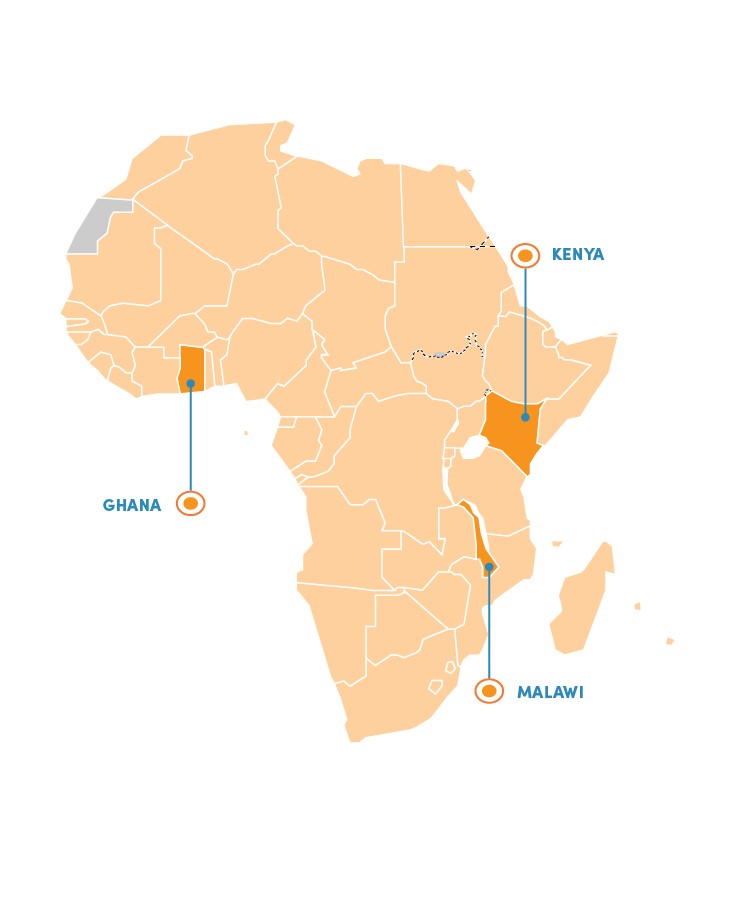MVIP countries: Ghana, Kenya and Malawi
Following a WHO call for expressions of interest to take part in the malaria vaccine pilot programme that was addressed to ministries of health in sub-Saharan Africa, Ghana, Kenya, and Malawi were selected in April 2017 for the first malaria vaccine phased introduction. Key among the criteria for selection were well-functioning malaria and immunization programmes and high malaria burden.
Malaria vaccine pilot implementation informs WHO recommendation for RTS,S malaria vaccine
On 6 October 2021, following the advice of global advisory bodies for immunization and malaria, WHO recommended the RTS,S/AS01 malaria vaccine be used for the prevention of P. falciparum malaria in children living in regions with moderate to high transmission as defined by WHO.
The WHO recommendation was informed by results generated from the ongoing RTS,S/AS01 malaria vaccine pilot programme in Ghana, Kenya and Malawi that has reached more than 830 000 children, as of December 2021. To date, more than 2.3 million doses have been administered through routine immunization programmes. Community demand for the vaccine is strong and evidence shows it can effectively be delivered through the routine child immunization platform; it is safe in routine use; the vaccine has substantial public health impact in real-life settings; and, that the vaccine increases access to malaria prevention for vulnerable children.
The pilots will continue in the 3 pilot countries through 2023 to understand the added value of the 4th vaccine dose, and to measure the longer-term impact on child deaths.
Ministries of Health of Ghana, Kenya and Malawi lead the pilots through each country’s routine immunization systems and will continue to do so.
The pilot programme is coordinated by WHO and supported by in-country and international partners, including PATH, UNICEF, and GSK, which is donating up to 10 million doses of the vaccine for the pilot. Financing for the pilot programme has been mobilized through an unprecedented collaboration among three key global health funding bodies: Gavi, the Vaccine Alliance; the Global Fund to Fight AIDS, Tuberculosis and Malaria; and Unitaid.
Updated: 8 December 2021
Collaboration with national malaria control programmes
Close collaboration with the national malaria control programmes in each country are ensuring that existing WHO-recommended prevention tools, such as long-lasting insecticidal nets and artemisinin-based combination therapies, continue to be deployed on a wide scale.

The boundaries and names shown and the designations used on this map do not imply the expression of any opinion whatsoever on the part of the World Health Organization concerning the legal status of any country, territory, city or area or of its authorities, or concerning the delimitation of its frontiers or boundaries. Dotted and dashed lines on maps represent approximate border lines for which there may not yet be full agreement.
